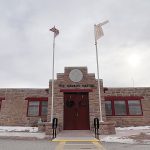
50 Years Ago: MacDonald under investigation re ONEO
The results of the 1970 primary for tribal chairman was made official this week 50 years ago with Peter MacDonald receiving the most chapter votes with 41 followed by Raymond Nakai with 27 and Sam Billison with four. No other candidate received higher than one.
You would think that coming in second place would concern Nakai, who was running for a third term as tribal chairman, but the weekend after the election, he told his supporters at a meeting in Chinle he expected MacDonald to be disqualified before the November election.
That was not as unbelievable as one would think because there had been reports that the Office of Navajo Economic Opportunity was under investigation for misuse of federal funds. A grand jury in Phoenix was actually looking into the charges.
According to reports in the media, the FBI was investigating some $4 million in funding that may have been used illegally. In other words, it was not used for the purposes that were intended.
MacDonald, the former executive director for ONEO, said he wasn’t worried about the investigation, claiming the charges were bought by Nakai as way to defame him or get him removed from the ballot.
Fast forward to 1987 and stories that MacDonald was under investigation for his involvement in the Big Boquillas ranch purchase. When asked at that time for a comment, he said “It has been under investigation ever since my days at ONEO and they have never been able to prove any wrongdoing on my part.”
Although he came in a distant third in the primary, Billison hadn’t given up on his hopes of being elected chairman in 1970.
He told the Navajo Times that he was considering running in the general election as a write-in candidate despite the fact that the tribal election laws said that only the top two vote-getters would be able to run in the general election.
“But there is nothing in the tribal election laws that prohibit a write-in candidate,” he said. In fact, there was no mention of write-in candidates all in the tribal election laws.
Billison said he had no plans to try to circumvent tribal laws so he was planning on asking the tribe’s general counsel, Harold Mott, for a legal opinion on the matter.
If he did, the feeling was that Mott would be encouraged by Nakai to find a way to make it happen since Nakai believed that Billison would take more votes from MacDonald than from him.
There was some concern among federal health officials about a possible outbreak of diphtheria occurring on the Navajo Reservation so an emergency vaccination program had been set up, mostly in San Juan and McKinley counties.
Public health officials had reported more than 20 reservation members had been diagnosed with the disease in the past month. No deaths had been reported but several were still reported to be in serious condition in hospitals in Albuquerque and Phoenix.
The plans were to vaccinate 10,000 persons in the two counties who were most at risk of getting seriously ill if they contracted the disease. This included children with existing respiratory problems as well as those over the age of 75
Ganado High School was planning to offer a course on cultural history of the Indians of the Southwest for the first time. This marked the first time that such a course has been offered at a public school on the reservation
Ganado School Superintendent John Birdsong said Navajo and Hopi students going to the high school were encouraged to take the course since the cultural history of the two tribes would be emphasized.
The course would be taught by a non-Indian but Birdsong said that person would have a state certificate to teach the subject.
He said the biggest problem the district faced was that there were no books available that were suitable for teaching a high school course.
There were, of course, more than 25 books that had been published over the years on various aspects of Navajo and Hopi history and culture. Most were out of print and those in print were not general enough to be used as a high school textbook.
So the district was working with faculty members at Navajo Community College to create a textbook from excerpts taken from a number of books to create a general view of the subject.
There were also plans to invite Navajo and Hopi elders to come and tell students what they were taught as they grew up about their culture by their grandparents.
As a result of their work on behalf of the Ganado school district, college officials learned about the lack of teaching materials on the subject and within a few years, the college set up its own publishing company to remedy this situation.
By the end of the decade, the college, along with Rough Rock School, was publishing more than a dozen books a year for schools to use in their classrooms.

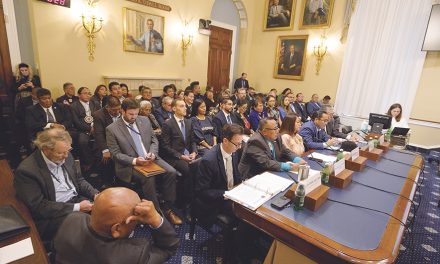
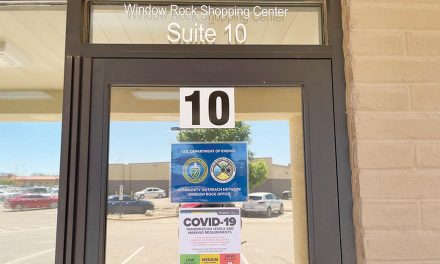

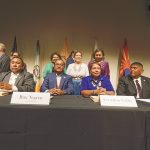

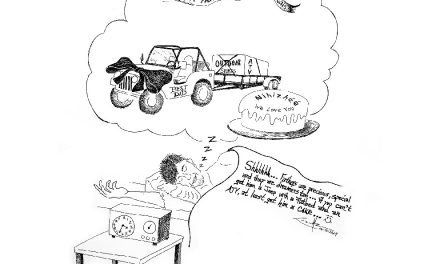


 Highway 264,
Highway 264, I-40, WB @ Winslow
I-40, WB @ Winslow